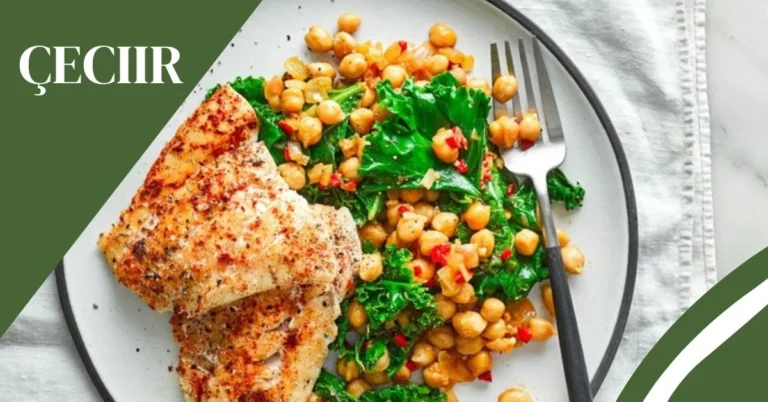Is e621 Halal or Haram? A Detailed Exploration
When it comes to dietary choices, understanding what is halal (permissible) and haram (forbidden) is crucial for Muslims. This distinction impacts everyday decisions, from the groceries they buy to the meals they eat at restaurants. One additive that often sparks debate in the Muslim community is e621, also known as monosodium glutamate (MSG). But is e621 halal or haram? Let’s delve into this topic to uncover the truth.
This article aims to explore whether E621 is halal or haram, providing an in-depth analysis based on Islamic dietary laws, health implications, production processes, and the opinions of scholars.
What is E621?
Monosodium Glutamate (MSG)
E621, or monosodium glutamate, is a flavor enhancer commonly used in the food industry. It is the sodium salt of glutamic acid, an amino acid that occurs naturally in many foods, including tomatoes, cheese, and mushrooms. MSG is known for its ability to enhance the umami taste, often referred to as the fifth taste, which is savory and deeply satisfying.
History and Usage
MSG was first isolated by Japanese chemist Kikunae Ikeda in 1908 from kombu, a type of edible kelp. Since then, it has been widely used in various cuisines, particularly in Chinese, Japanese, and processed foods. Its primary function is to enhance the flavor of foods, making them more palatable and enjoyable.
Understanding Halal and Haram
Definition of Halal
In Islam, “halal” refers to anything that is permissible under Islamic law. This includes food, drinks, and other consumables that adhere to the dietary laws outlined in the Quran and Hadith. Halal products must be free from any component that Muslims are prohibited from consuming.
Definition of Haram
Conversely, “haram” denotes anything that is forbidden. This includes specific foods, drinks, and practices that are explicitly prohibited by Islamic teachings. Consuming haram substances is considered a serious offense in Islam.
The Halal and Haram Status of E621
Islamic Dietary Laws
In Islam, dietary laws are derived from the Quran and Hadith, which provide guidelines for what is halal and haram. These laws cover everything from the method of animal slaughter to the ingredients used in food products. For Muslims, adhering to these laws is a matter of faith and obedience to God.These laws aim to ensure that Muslims consume food that is pure, clean, and beneficial for their health.
Criteria for Halal and Haram
For a food product to be considered halal, it must meet the following criteria:
- It should not contain any harmful ingredients.
- It should be free from contamination by haram substances during its production, processing, and packaging.
- It should be prepared, processed, and stored using equipment that is not contaminated with haram substances.
Halal Status of MSG
The halal status of MSG depends largely on its source and the production process. MSG can be derived from various sources, including plant-based materials, microbial fermentation, and animal-based materials. The method of production and the nature of the source material play a critical role in determining whether MSG is halal or haram. According to the information from Islamic Religious Council of Singapore, e621 is doubtful.
Plant-Based and Microbial Fermentation Sources
If MSG is derived from plant-based materials or through microbial fermentation, it is generally considered halal. These methods do not involve any haram substances, making the end product permissible for consumption by Muslims.
Animal-Based Sources
If MSG is derived from animal-based materials, its halal status becomes questionable. If the source is an animal that is not slaughtered according to Islamic guidelines, the MSG would be considered haram. Therefore, it is essential for Muslims to verify the source of MSG before consumption.
Health Implications of MSG
Potential Health Benefits
MSG has been a topic of debate among health professionals. Some studies suggest that MSG can enhance the flavor of food without adding extra calories, making it a useful additive for those looking to manage their weight. Additionally, MSG can improve the taste of food for individuals with reduced taste sensitivity, such as the elderly.
Possible Health Risks
On the other hand, MSG has been associated with various health concerns. Some individuals report experiencing symptoms like headaches, sweating, and chest pain after consuming foods containing MSG, a condition often referred to as “Chinese Restaurant Syndrome.” However, scientific evidence on the adverse effects of MSG is inconclusive, and regulatory authorities like the FDA consider it safe for consumption in moderate amounts.
Scholar Opinions on Health Implications
Islamic scholars emphasize the importance of consuming food that is not only halal but also wholesome and beneficial for health. If a significant number of people experience adverse effects from consuming MSG, it may be advisable to avoid it, even if it is technically halal.
The Production Process of MSG
Fermentation Process
The most common method for producing MSG today is through the fermentation of starch, sugar beets, sugar cane, or molasses. This process involves the use of bacteria that convert these carbohydrates into glutamic acid, which is then neutralized with sodium to produce MSG. This method is generally considered halal, provided that the fermentation process does not involve any haram substances.
Chemical Synthesis
Another method for producing MSG is chemical synthesis. This method can involve the use of various chemicals and catalysts. The halal status of MSG produced through chemical synthesis depends on the nature of the chemicals used and whether they are free from haram substances.
E621 in Food Products
Common Uses
MSG is widely used in the food industry to enhance the flavor of processed foods, soups, snacks, canned vegetables, and seasonings. It is also commonly found in fast food and restaurant dishes, particularly in Chinese cuisine.
Reading Ingredient Labels
For Muslims, it is essential to read ingredient labels carefully to identify the presence of E621. Many food products explicitly list MSG or E621 on their labels. If the source of MSG is not clear, consumers can contact the manufacturer for more information or look for halal certification marks.
Islamic Scholars’ Opinions on E621
Diverse Views
Islamic scholars have diverse views on the halal status of MSG. Some scholars consider MSG to be halal if it is derived from halal sources and produced through a halal process. Others recommend caution, especially if the source and production methods are not clear.
Scholarly Consensus
There is no unanimous consensus among scholars on the halal status of MSG. Therefore, it is advisable for Muslims to consult their local scholars or halal certification bodies for guidance.
Halal Certification and E621
Halal certification bodies play a crucial role in verifying the halal status of food products, including MSG. These organizations examine the source, production process, and handling of food additives to ensure they comply with Islamic dietary laws.
For Muslims, halal certification provides assurance that a product is permissible for consumption. When it comes to MSG, seeking out products with halal certification can help Muslims make informed dietary choices.
Dietary Choices and MSG
Personal Preferences
Individual Muslims may have different preferences and sensitivities when it comes to consuming MSG. Some may choose to avoid it altogether due to health concerns or uncertainty about its halal status, while others may be comfortable consuming it if they are confident it is derived from halal sources.
Making Informed Choices
To make informed dietary choices, Muslims can:
- Research the source and production process of MSG.
- Look for halal certification on food products.
- Consult with Islamic scholars and halal certification bodies.
- Consider potential health implications and personal sensitivities.
Conclusion
In summary, the debate over whether e621 is halal or haram is complex, involving both religious and health considerations. While some Islamic scholars deem it permissible if sourced and produced halal, others advise caution due to potential contamination risks. Ultimately, Muslims are encouraged to make informed choices, seek halal certification, and consult religious authorities when in doubt.
FAQs:
Is e621 the same as MSG?
Yes, e621 is the food additive code for monosodium glutamate (MSG), a common flavor enhancer.
Can e621 be made from halal sources?
Yes, e621 can be produced from halal sources through a halal-compliant production process.
Are there any halal-certified brands of e621? Some brands may obtain halal certification, ensuring their e621 is produced according to Islamic guidelines. Consumers should look for halal certification labels.
How can I avoid E621 if I choose to?
To avoid e621, read food labels carefully and choose products that do not list MSG or e621 as an ingredient. Opt for natural, whole foods when possible.
What should I do if I’m unsure about an ingredient’s halal status?
If in doubt, consult a knowledgeable Islamic scholar or a trusted halal certification body to determine the halal status of an ingredient.







